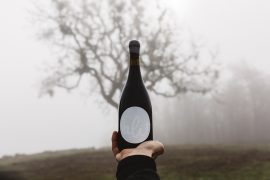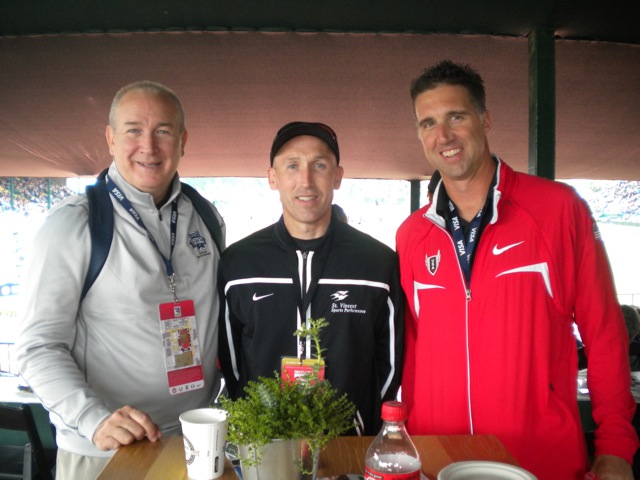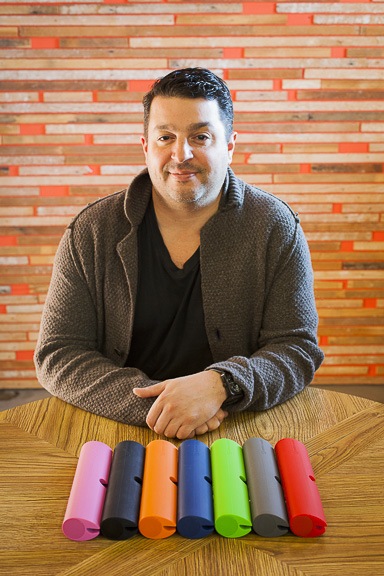
photo by Jan Sonnenmair
Disjointed and winding is the road of entrepreneurship. For Ruby Gates, this journey took many starts and turns before bringing her to Point 97, a marine ecosystem planning software spinoff of Portland’s conservation nonprofit, Ecotrust.
In August 2013, Point 97 launched a rare for-profit subsidiary of the twenty-three-year-old Ecotrust. The software behind Point 97 was developed through grants within the Marine Consulting Initiatives arm of Ecotrust. It started with fishermen documenting the number and types of fish they caught and recording that data. This would eventually be compiled for government agencies, often with long lags of time in between.
“That work expanded into global demands,” Gates notes. “The spinoff of this program into a for-profit entity accelerates the speed that data are collected and published. That convenience, coupled with the ability to knit together contracts for these services, made it ready for a for-profit environment.”
Behind Point 97 are two technologies. The first is software that aggregates marine data from the ocean—fish counts, endangered species, wind speed, shipping lanes—and overlays it with digital nautical maps. Across the world, fishing agencies require, in one form or other, a fish count of the day’s take. The technology and the method of recording vary greatly. “We’re going into places that are using pencil and paper—if that—for their catch reports,” Gates says. Point 97 distributes simple devices to these fishermen, who then upload their catch information to a common database. In return, fisherman get their own data sent back to them in a format that helps them track and optimize their own fishing businesses.
“… I’ve now become more open to unintended externalities that shape and form a company. In the end, I suppose that’s what makes working in a startup environment so energizing—you’re constantly called to a higher version of yourself over and over again.”— Ruby Gates
In the aggregate, these data are the compelling framework of Point 97 software. The mapped data are particularly useful conservation and energy planning tools for clients in marine preservation, and the wind and wave energy sectors.
The second technology is Point 97’s Digital Deck, essentially the brains that analyze and distill marine data for useful application. Clients such as The Nature Conservancy, World Wildlife Fund, the Surfrider Foundation, American Indian tribes and NOAA use this marine data for planning.
A Salem native, Gates began creating and selling T-shirts before launching her bakery, Sweet Organics in Portland. She used the eventual sale of her bakery to take a year off in 1995 and rethink her career. Technology, not dough, was becoming the new currency, and Gates had little experience.
She enrolled in classes with a technology bent and transformed her entrepreneurial spirit into startups. There was, among others, WebCriteria, a website analysis firm; then founding Encapsys Inc., a data analysis entity in the industrial energy sector; and MarketShift Strategies, a business strategy group in climate and energy. With each step, Gates moved deeper into the nexus of technology and the environment before joining Point 97 in September 2012.
“Each experience in conceptualizing, incubating and then growing a start-up has been different,” says Gates, 49. “Where I used to be more calibrated and specific in my growth strategy, I’ve now become more open to unintended externalities that shape and form a company. In the end, I suppose that’s what makes working in a startup environment so energizing—you’re constantly called to a higher version of yourself over and over again.”
Point 97 is an interesting group of collaborators in marine biology, ranging from commercial fishermen to tribal governments. Altogether, the startup has twelve employees and is projected to add another five this year.
From the outside looking in, investors might discount a for-profit startup that has come from the more static culture of a nonprofit. Gates, however, sees this as a strength. “You have this spinoff in the for-profit world that has the brain trust of the nonprofit,” she says. Further, Ecotrust has had success in a prior crossover private equity fund that centers on sustainable forestry. Ecotrust Forests LLC was Ecotrust’s first for-profit spinoff in 2004.
After Point 97 gets its sea legs, Gates thinks she can take its technology to land. “Eventually, I think we can address everything from marine protection and enforcement to marine and terrestrial food security—even supply-stream management at Walmart. How our food is harvested best and the logistics of getting it to market, this is one area we can scale.”








